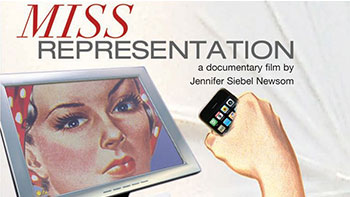by Margarita Diaz
The Supreme Court’s decision to uphold the Affordable Care Act on June 28th was, understandably, a huge deal for Democratic leader Nancy Pelosi. She was one of the strongest voices behind the passage of the legislation in 2010 and staunch defender of the law as it became the centerpiece of a heated public debate. For Pelosi, the day was cause for celebration.
But in addition to covering the former House Speaker’s unwavering advocacy for health care reform, POLITICO chose to devote an entire article to something that was, apparently, of equal importance: the color of the pumps she was wearing that day. They were pointed-toe, lavender; her “lucky” pair, according to an aide. And in an almost TMZ-like manner, the curt piece concluded with some sarcastic speculation of their label: “Pelosi has been known to wear shoes from designers like Manolo Blahnik and Jimmy Choo, so it’s safe to say they’re not from Payless.”
Meanwhile, an article in Maine’s Bangor Daily News provided some hard hitting, in depth analysis of a Sur La Table wedding registry for newly-engaged US Senator Susan Collins. “From towels to tongs,” read the headline, with an ensuing description of the Senator’s tastes as ‘colorful and practical.’ The piece, peppered with quotes from various boutique owners and event planners, discussed what Collins’ selections revealed about her as a person and politician. As for a statement from the Senator herself? An obvious decline to comment.
In the bigger scheme of coverage on women in politics, these articles are relatively uncontroversial (if you want a hard hitter, check out Pat Buchanan’s recent remarks on having a woman in the White House), but these are just a few current examples of how media has the power to singlehandedly undermine the electability of women in the upcoming election.
By all accounts, this November’s election is poised to be huge for women. The 2012 Project reports that American women are on their way to breaking a record number of candidates running for the House, while many organizations, politicians, bloggers and voters are gearing up for a big push to get more women elected to Congress in the fall.
As highlighted in the Miss Representation film, women candidates and politicians are subject to much more media scrutiny than their male counterparts, affecting the way that these women are publicly perceived. When journalists choose to focus on a female politician’s pumps or taste in silverware, they stack the deck against her, providing extra, irrelevant fodder for the voter to base his or her decision.
Inevitably, this can make or break a woman’s chances of election or re-election. There’s a large body of research out there that demonstrates that even mild sexist language and gendered coverage has the power to change voters’ minds, something Americans witnessed in full force with Hillary Clinton’s run for the Democratic presidential nomination in 2008 and with Michelle Bachmann’s attempt for this year’s Republican nod.
The campaign Name it Change It has devised a great method for people to analyze at the way women politicians and candidates are covered by the media – the reversibility test. In short, if you wouldn’t normally see a certain story frame for a male politician in the publication you are reading, then it shouldn’t be used for a female politician. Simple as that.
Let’s use our two articles as examples. Would POLITICO ever concern itself with House Speaker John Boehner’s brand of shoe? Assuming he had had one, would a local newspaper in Massachusetts have written extensively on newly-wedded Barney Frank’s wedding registry?
There are dozens more instances out there. Sarah Steelman, a GOP Senate candidate in Missouri, was asked if her husband, a former candidate for Missouri Attorney General, was engineering her campaign in any way. Elizabeth Warren, the Democratic Senate candidate for Massachusetts, was described by a columnist as a “blue eyed Cherokee warrior princess.”
While all of this coverage is subtle, it is nonetheless effective.
If we’re to champion women and girls as leaders and increase the numbers of women in elected positions, we must become aware of the way media treats women this election season. Subtle sexism is very present in coverage of female politicians and a simple headline could cost a candidate some needed votes. If you feel a headline or article unfairly portrays or scrutinizes a female politician, speak up! Leave a comment on the article, or write to the author or the editor of the publication. Your voice matters.
To learn more about how you can help get more women elected in November, check out Miss Representation’s joint campaign with The 2012 Project, Elect Women 2012!
(Photo credit: Associated Press)
Margarita is an intern with MissRepresentation.org. The opinions featured in this piece are her own and not necessarily those of MissRepresentation.org.



